Audi Q3 vs Volvo V60 - Differences and prices compared
Compare performance (272 HP vs 455 HP), boot space and price (38200 £ vs 41600 £ ) at a glance. Find out which car is the better choice for you – Audi Q3 or Volvo V60?
Costs and Efficiency:
When it comes to price and running costs, the biggest differences usually appear. This is often where you see which car fits your budget better in the long run.
Audi Q3 has a hardly perceptible advantage in terms of price – it starts at 38200 £ , while the Volvo V60 costs 41600 £ . That’s a price difference of around 3420 £.
Fuel consumption also shows a difference: Audi Q3 manages with 1.70 L and is therefore significantly more efficient than the Volvo V60 with 2.40 L. The difference is about 0.70 L per 100 km.
As for electric range, the Audi Q3 performs noticeable better – achieving up to 119 km, about 27 km more than the Volvo V60.
Engine and Performance:
Under the bonnet, it becomes clear which model is tuned for sportiness and which one takes the lead when you hit the accelerator.
When it comes to engine power, the Volvo V60 has a convincingly edge – offering 455 HP compared to 272 HP. That’s roughly 183 HP more horsepower.
In acceleration from 0 to 100 km/h, the Volvo V60 is noticeable quicker – completing the sprint in 4.60 s, while the Audi Q3 takes 5.70 s. That’s about 1.10 s faster.
In terms of top speed, the Audi Q3 performs clearly perceptible better – reaching 240 km/h, while the Volvo V60 tops out at 180 km/h. The difference is around 60 km/h.
There’s also a difference in torque: Volvo V60 pulls decisively stronger with 709 Nm compared to 400 Nm. That’s about 309 Nm difference.
Space and Everyday Use:
Cabin size, boot volume and payload all play a role in everyday practicality. Here, comfort and flexibility make the difference.
Both vehicles offer seating for 5 people.
In curb weight, Audi Q3 is slight lighter – 1635 kg compared to 1734 kg. The difference is around 99 kg.
In terms of boot space, the Volvo V60 offers barely noticeable more room – 519 L compared to 488 L. That’s a difference of about 31 L.
In maximum load capacity, the Volvo V60 performs slight better – up to 1431 L, which is about 45 L more than the Audi Q3.
When it comes to payload, Audi Q3 minimal takes the win – 535 kg compared to 506 kg. That’s a difference of about 29 kg.
Who wins the race in the data check?
The Audi Q3 sits just ahead overall in the objective data comparison.
This result only shows which model scores more points on paper – not which of the two cars feels right for you.
Costs and Consumption
View detailed analysis
Engine and Performance
View detailed analysis
Dimensions and Body
View detailed analysis
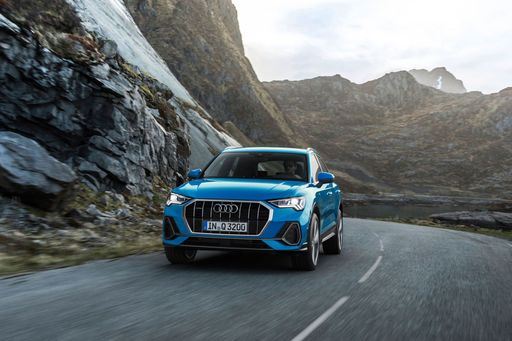
Audi Q3
Audi Q3
The Audi Q3 feels like a grown-up compact SUV with premium polish and city-friendly agility, the sort of car that makes weekend escapes and daily commutes equally satisfying. Inside, you get quality materials and smart packaging that keep things practical without skimping on style, so it’s an easy pick for buyers who want luxury without the drama.
details
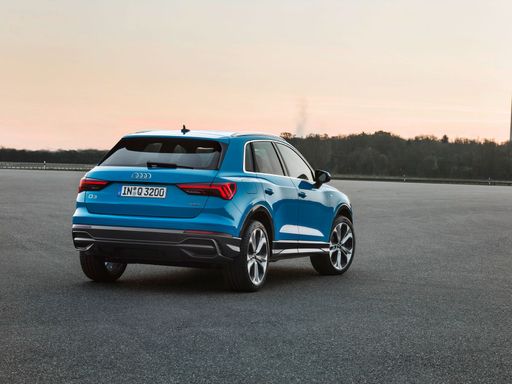
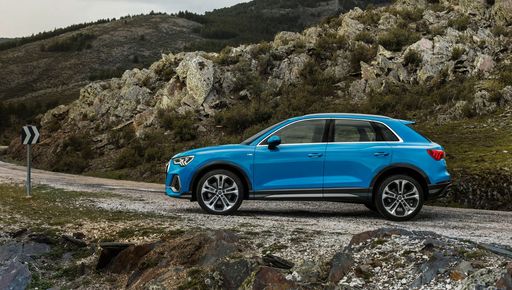
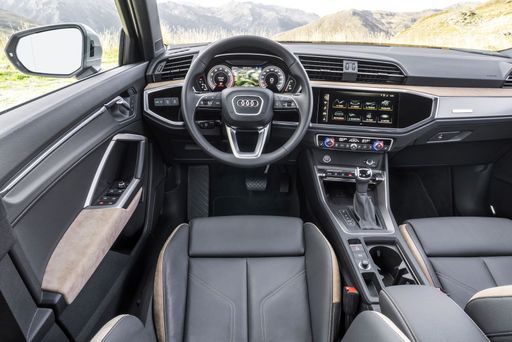
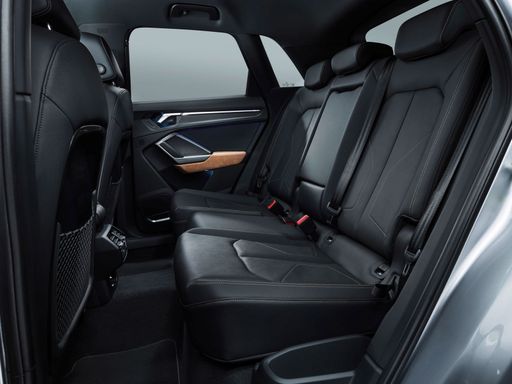
Volvo V60
The Volvo V60 blends elegant Scandinavian design with a practical estate layout, making it a composed and sensible choice for buyers who want style without sacrifice. Inside, a serene cabin, clever safety features and a supple ride turn daily commutes and weekend getaways into effortless, grown-up motoring.
details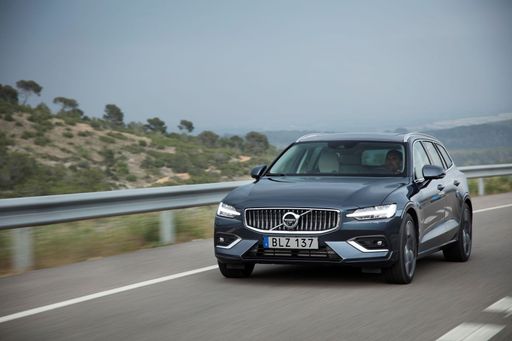
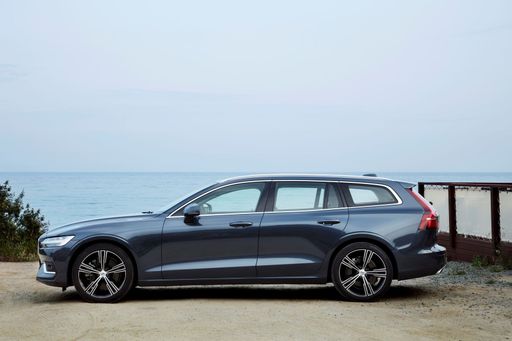
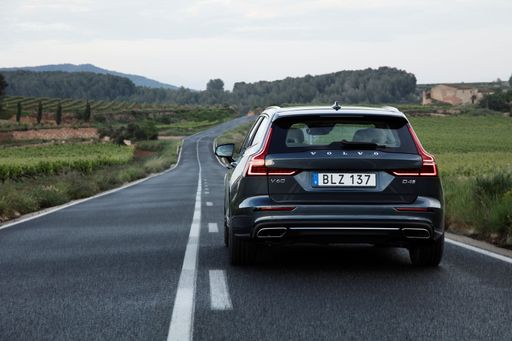
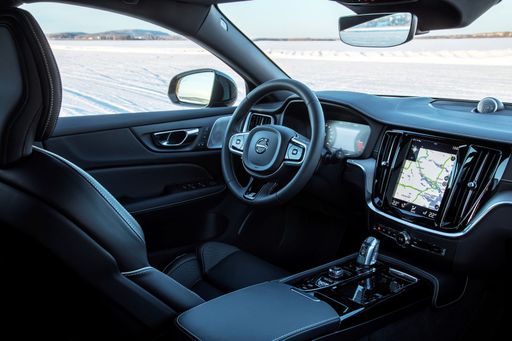
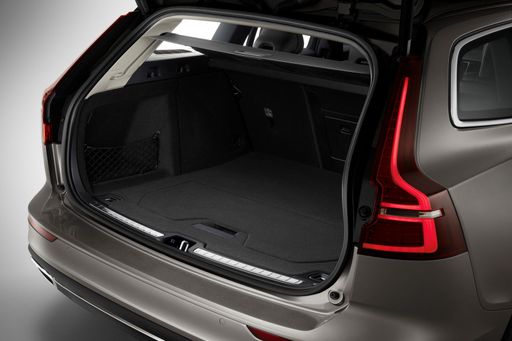
Costs and Consumption |
|
|---|---|
|
Price
38200 - 52900 £
|
Price
41600 - 64200 £
|
|
Consumption L/100km
1.7 - 8.6 L
|
Consumption L/100km
2.4 - 6.2 L
|
|
Consumption kWh/100km
-
|
Consumption kWh/100km
-
|
|
Electric Range
118 - 119 km
|
Electric Range
92 km
|
|
Battery Capacity
19.70 kWh
|
Battery Capacity
14.70 kWh
|
|
co2
39 - 195 g/km
|
co2
54 - 140 g/km
|
|
Fuel tank capacity
45 - 60 L
|
Fuel tank capacity
60 L
|
Dimensions and Body |
|
|---|---|
|
Body Type
SUV
|
Body Type
Estate
|
|
Seats
5
|
Seats
5
|
|
Doors
5
|
Doors
5
|
|
Curb weight
1635 - 1900 kg
|
Curb weight
1734 - 2064 kg
|
|
Trunk capacity
375 - 488 L
|
Trunk capacity
519 L
|
|
Length
4531 mm
|
Length
4778 mm
|
|
Width
1859 mm
|
Width
1850 mm
|
|
Height
1559 - 1601 mm
|
Height
1432 mm
|
|
Max trunk capacity
1196 - 1386 L
|
Max trunk capacity
1431 L
|
|
Payload
505 - 535 kg
|
Payload
466 - 506 kg
|
Engine and Performance |
|
|---|---|
|
Engine Type
Petrol MHEV, Petrol, Plugin Hybrid, Diesel
|
Engine Type
Petrol MHEV, Plugin Hybrid
|
|
Transmission
Automatic
|
Transmission
Automatic
|
|
Transmission Detail
Dual-Clutch Automatic
|
Transmission Detail
Dual-Clutch Automatic, Automatic Gearbox
|
|
Drive Type
Front-Wheel Drive, All-Wheel Drive
|
Drive Type
Front-Wheel Drive, All-Wheel Drive
|
|
Power HP
150 - 272 HP
|
Power HP
197 - 455 HP
|
|
Acceleration 0-100km/h
5.7 - 9.2 s
|
Acceleration 0-100km/h
4.6 - 7.6 s
|
|
Max Speed
208 - 240 km/h
|
Max Speed
180 km/h
|
|
Torque
250 - 400 Nm
|
Torque
300 - 709 Nm
|
|
Number of Cylinders
4
|
Number of Cylinders
4
|
|
Power kW
110 - 200 kW
|
Power kW
145 - 335 kW
|
|
Engine capacity
1498 - 1984 cm3
|
Engine capacity
1969 cm3
|
General |
|
|---|---|
|
Model Year
2025
|
Model Year
2024 - 2025
|
|
CO2 Efficiency Class
E, G, B
|
CO2 Efficiency Class
E, B
|
|
Brand
Audi
|
Brand
Volvo
|
Is the Audi Q3 offered with different drivetrains?
The Audi Q3 is available as Front-Wheel Drive or All-Wheel Drive.
